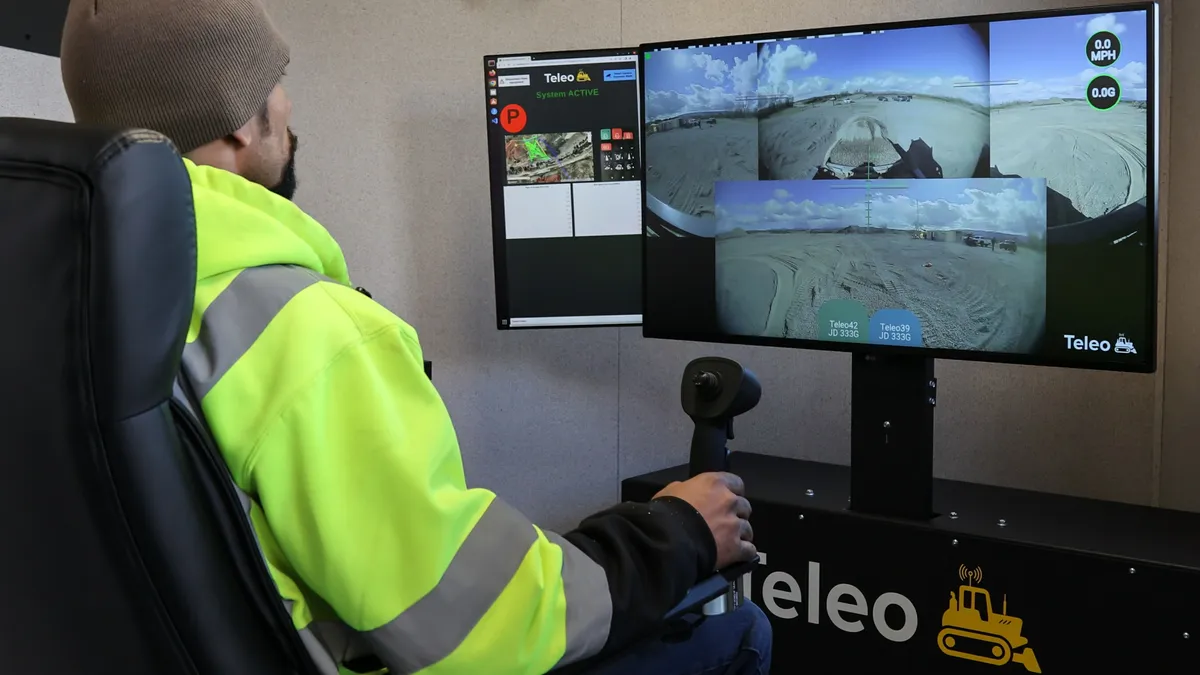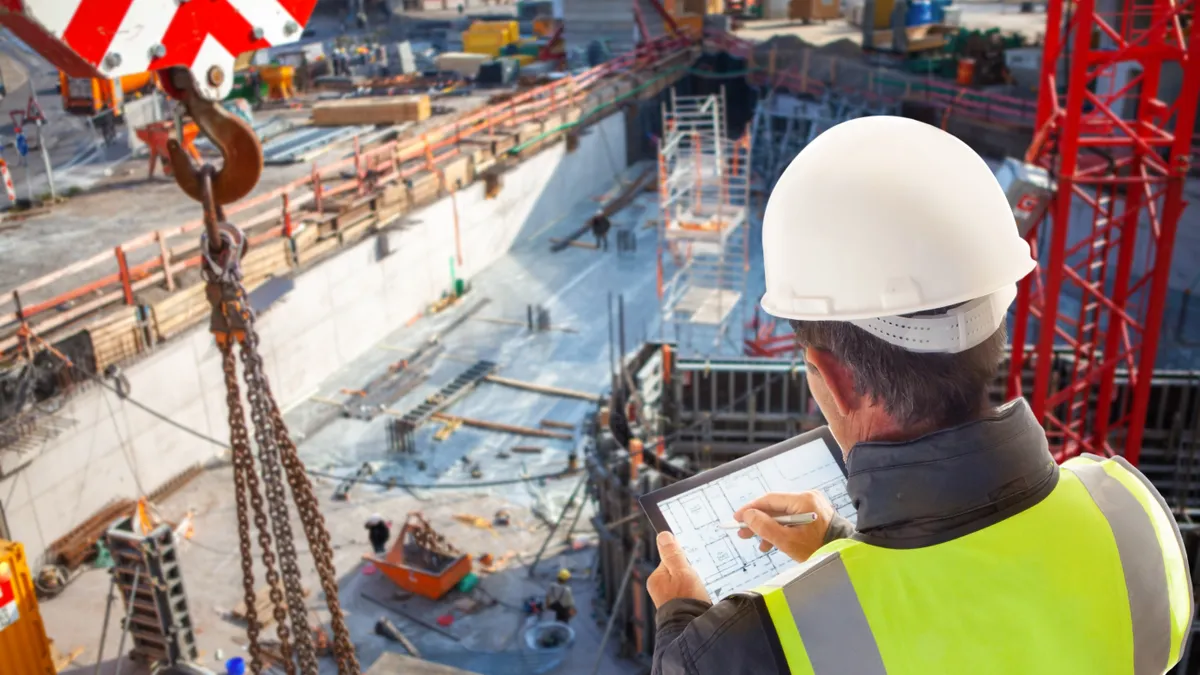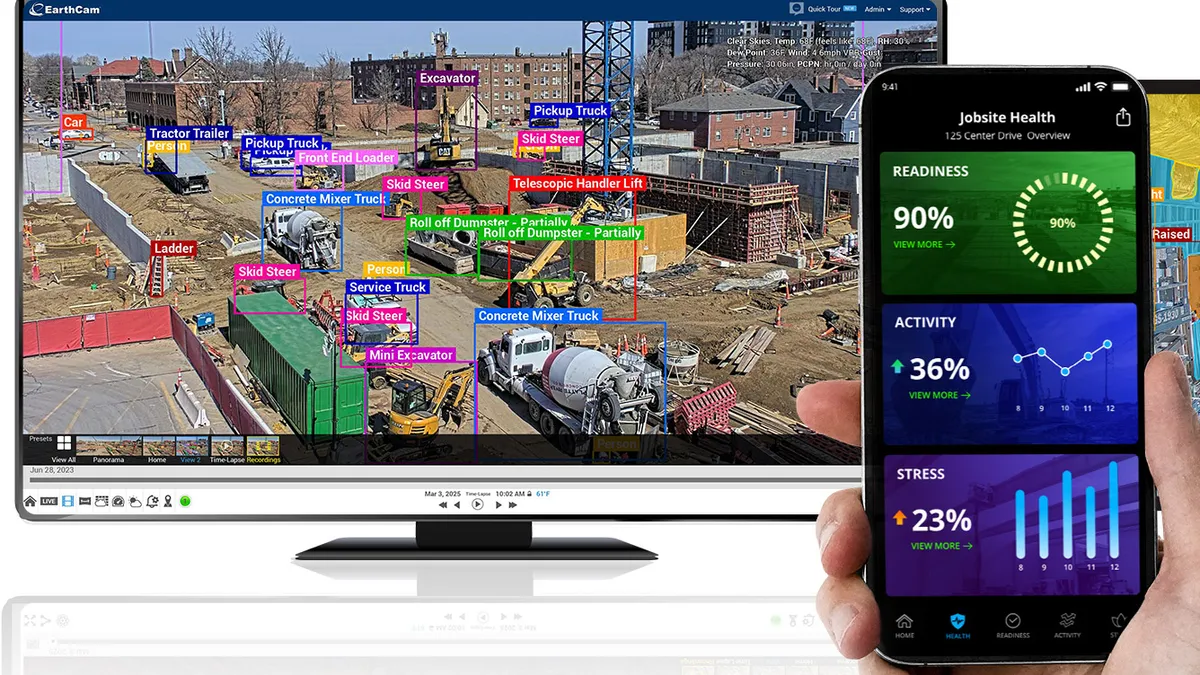Construction has a reputation of being a Luddite industry, but there are firms defying that image with groundbreaking technical innovations.
For some of them, their efforts have been recognized on a list of innovators by business publication Fast Company, which grouped winners by the category of their work.
Here are the eight construction-adjacent companies that earned the recognition as one of “The World’s Most Innovative Companies of 2024.”
Interplay Learning
Applied AI
Contractors are aware of two constant truths in the industry — that workers are hard to come by, and that training the ones who make their way to the jobsite takes time.
Austin, Texas-based workforce education firm Interplay Learning hopes to help builders retain and train their workers on jobsite processes. It uses 3D and virtual reality training simulations to educate workers on the necessary knowledge they need in their respective trades via its product, SkillMill, according to its website.
What sets the firm apart, according to Fast Company, is an AI-based assistant that it calls SAM, which lets builders receive instant answers to questions they may have while using the product.
ZGF
Architecture
ZGF, an architecture firm based in Portland, Oregon, drew Fast Company’s eye with its approach to mass timber projects.
How? It built its own mass timber supply chain.
The architect received acclaim for its work on the Portland International Airport and its use of mass timber on the project. However, Fast Company noted that ZGF was also careful in its selection, and targeted suppliers who were within 300 miles, heavily favoring local and Indigenous operations.
Arcadis
Architecture
In the wake of disasters like the Fern Hollow Bridge collapse, infrastructure safety is top of mind for many AEC professionals. Fast Company recognized Amsterdam-based contractor Arcadis for its work in developing an AI-based safety app for bridges.
Arcadis partnered with infrastructure assessment firm Niricson to develop Bridge Health, an inspection service that uses AI, machine learning and robotics to check bridges for defects and other issues that could lead to failure and catastrophe.
The program, which uses drones, is capable of discerning data that is invisible to the human eye, Fast Company writes.
Transfr
Education
Virtual reality skills training platform Transfr earned recognition from Fast Company for its efforts to train healthcare professionals amid a shortage, but the program has broad applications for the construction industry as well.
The New York City-based business’s training offerings serve a wide range of professions — from government workers to healthcare professionals to skilled tradesworkers — and uses VR technology to train jobseekers in the ways of their new professions.
For builders, Transfr partners with employers and provides simulations that are in compliance with industry standards, according to the company’s website.
Holcim
Manufacturing
Cement manufacturing giant Holcim made its mark on Fast Company’s list for its efforts to create a more sustainable cement and concrete product for the construction industry.
Fast Company pointed to the Swiss firm’s continued efforts to lobby governments for green legislation, along with a one-of-its-kind plant that produces Europe’s first low-carbon calcined clay-based cement.
The industry stalwart also turned its research center in Lyon, France, into a startup incubator focused on businesses that are working to reduce emissions across the construction industry.
Nucor
Manufacturing
Charlotte, North Carolina-based Nucor earned recognition from Fast Company for its efforts to mitigate emissions at its plants and sites across the U.S.
In 2023, it made several moves aimed at reducing its carbon footprint. These include a switch to battery-powered electric trucks for deliveries, commissioning the first LEED v4 certified steel mill and deploying carbon capture and storage tech at a Louisiana plant.
Teleo
Robotics
Palo Alto, California-based robotics firm Teleo made waves on the Fast Company list for its technology that turns regular heavy machinery into autonomous robots.
Fast Company called out Teleo’s retrofit kit, which can be installed on existing machinery. The technology also allows one operator to run multiple devices simultaneously, with training taking anywhere from a just few hours to a just few days.
Dusty Robotics
Robotics
Dusty Robotics, a Mountain View, California-based construction robotics firm, earned its spot on Fast Company’s list of innovators for its FieldPrinter, a proprietary piece of tech that takes the arduous task of laying out a jobsite and gives it to a robot.
Its FieldPrinter automates the process of imposing digital floor plans onto physical construction sites by printing them on the floor through a combination of hardware, software and services. The process is faster than hand-made layouts, Fast Company writes.
Altogether, Dusty has printed over 70 million square feet of building layout on more than 1,000 projects, according to the company.
Editor’s Note: Construction Dive parent company Industry Dive was recognized as one of Fast Company’s winners in the Media category.





















